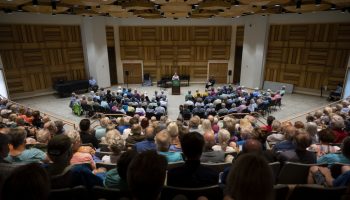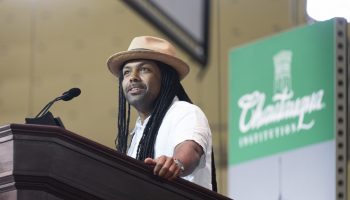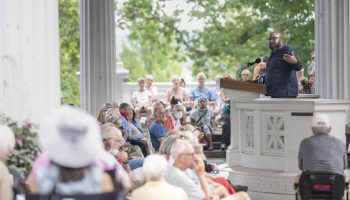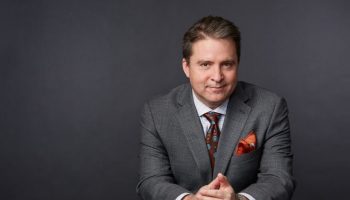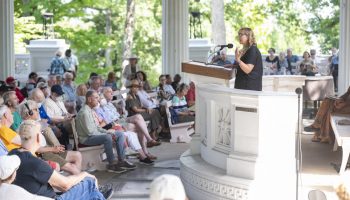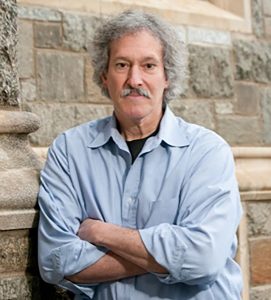
Out of everything teaching entails, Ori Z. Soltes said what he enjoys most is dealing with “the world of the mind.”
At 2 p.m. Tuesday, June 25, in the Hall of Philosophy, Soltes, professor and lifelong scholar, will present his lecture, “Obvious and Obscure: Moments that Have Transformed Judaism.” He is the Goldman Professorial Lecturer in Theology and Fine Arts at Georgetown University and former director and curator of the B’nai B’rith Klutznick National Jewish Museum. He has also studied a multitude of topics and authored over 280 books, articles and essays. His lecture is a continuation of Week One’s interfaith theme “Religious Moments That Changed the World.”
“I love the challenges of dealing with issues, particularly those that don’t easily resolve like paradoxes and contradictions,” Soltes said. “I tend to be interdisciplinary and I tend to be interdenominational, multicultural and interfaith in the kinds of courses that I present. I love seeing my students come alive when they start to engage.”
Soltes teaches a variety of different subjects, including theology, art history, politics and philosophy. Because he teaches those classes at the Center for Jewish Civilization, he can incorporate any topic he wants, as long as there is a “Jewish hook.”
Although it is not mandatory in this case, Soltes is incorporating that hook in his lecture as well.
Soltes said he will begin by discussing the problematic nature of defining Judaism, both “conceptually and historically.”
“When does what we recognize as Judaism actually begin?” he said. “It is important to understand the degree to which we can and can’t answer that question.”
After exploring the definition, Soltes will walk through moments “significant for the evolution of Judaism,” ranging from antiquity to the present.
“There are a lot of different moments that are part of that evolution,” he said. “It’s obvious if one looks in the 20th century. One sees the Holocaust, one sees the coming into existence of the state of Israel, but obviously, there was a lot more that went on.”
Soltes said traveling through this timeline is crucial to his argument because people tend to mesh the history of Judaism with that of Christianity.
“I will go back and step onto the stage of the history of a guy by the name of Jesus because that is going to have an effect in creating what we call Judaism in distinction from what we call Christianity,” he said. “Both see themselves as the proper heirs to the 2,000-year tradition that precedes Jesus, that of which began with Abraham, continued with Moses, Isaiah and so on down the line.”
Many people confuse those 2,000 years of prelude with Judaism itself. What people do not realize, according to Soltes, is that Christians also saw themselves as the “proper continuation” of those 2,000 years. This disagreement is where the phrase “True Israel” came to be.
“The True Israel started to be used by the late, ancient and early Church,” he said. “That statement, along with a lot of other things, are issues that I will bring up, definitional ones, the obvious moments which are so crucial and some which are more obscure or less well-understood as crucial moments.”
Soltes believes it is important to debunk these common misconceptions because people have an unintentionally narrow perspective on religion.
“Most of us learn what we learn in Sunday school, and most of us in Sunday school learn a limited and skewed volume of information about our own faith and even more so about other faiths,” Soltes said.
Soltes is excited to be returning to the Institution, a place he and his family consider “a home away from home.”

